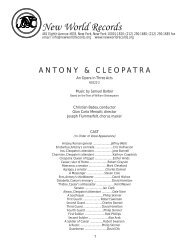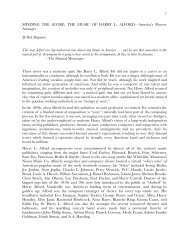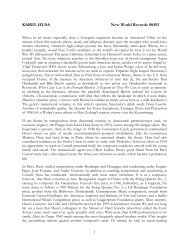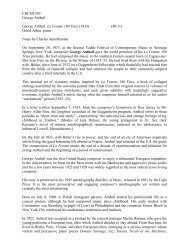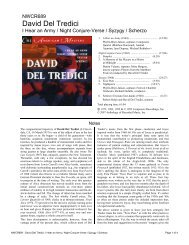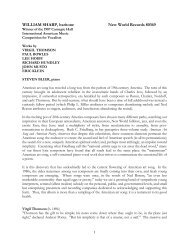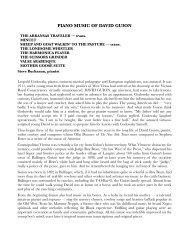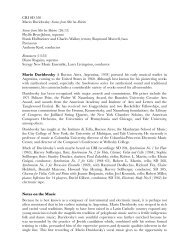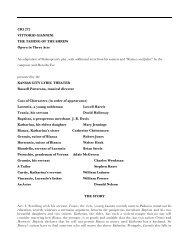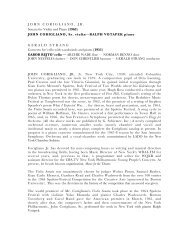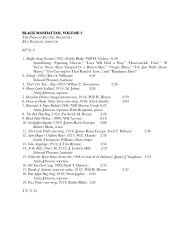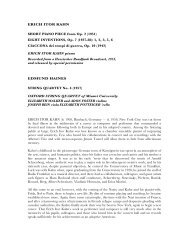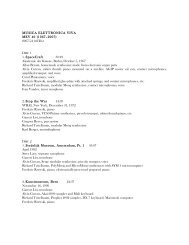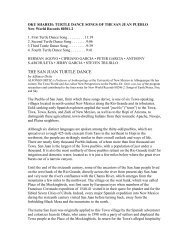Brother, Can You Spare a Dime? - New World Records
Brother, Can You Spare a Dime? - New World Records
Brother, Can You Spare a Dime? - New World Records
You also want an ePaper? Increase the reach of your titles
YUMPU automatically turns print PDFs into web optimized ePapers that Google loves.
starring movie, College Humor, was made in 1933. After this his starring performances<br />
in all media—records, radio, movies, stage performances, and eventually television—<br />
become too numerous and too well known to require retelling here.<br />
Americans who lived through the Depression think of Crosby with a special affection,<br />
not only because of his skills as a performer but perhaps even more because of the<br />
affable, unruffled, sympathetic, reassuring personality that shone through whatever song<br />
he was singing or role he was playing. It was difficult to lose faith in a country that had<br />
produced a Bing Crosby.<br />
The Boulevard of Broken Dreams<br />
(Al Dubin and Harry Warren)<br />
(From the film Moulin Rouge)<br />
Deane Janis, with Hal Kemp’s Orchestra. Recorded October 31, 1933, in Chicago.<br />
Originally issued on Brunswick Br 6734.<br />
Moulin Rouge, a 1933 movie musical with a cast including Constance Bennett, Franchot<br />
Tone, Russ Columbo, and the Boswell Sisters, made little impact on the history of film (it<br />
had nothing to do with the famous film of the same name made some two decades later,<br />
which was about the French painter Toulouse-Lautrec), but it did have a splendid score<br />
by Harry Warren and Al Dubin. (Another song from Moulin Rouge, “Coffee in the<br />
Morning, Kisses in the Night,” may be heard on <strong>New</strong> <strong>World</strong> <strong>Records</strong> NW 240, Where<br />
Have We Met Before? Forgotten Songs from Broadway, Hollywood, and Tin Pan Alley.)<br />
Constance Bennett, who sang so rarely that she never recorded, sang “The Boulevard of<br />
Broken Dreams” in the film. This song is a splendid example of another rather rare type<br />
of piece, more somber and serious than most songs of the time, perhaps indirectly<br />
reflecting the mood of America during the Depression. “Stormy Weather” (1933), by<br />
Harold Arlen and Ted Koehler, is probably the most famous song of this type.<br />
“The Boulevard of Broken Dreams” had been recorded before the release of the film.<br />
Other recordings followed quickly. Benny Goodman brought it out, with Helen Ward<br />
singing, as did the Ted Weems band (with vocalist-whistler Elmo Tanner) and Jan<br />
Garber’s orchestra (Lee Bennett, singer). Frances Langford recorded it with Harry<br />
Sosnik’s band, and as late as 1950 Tony Bennett made such a popular disc of it that<br />
Columbia rewarded him with a long-term contract. The song had a much more<br />
distinguished career than the movie in which it appeared.



